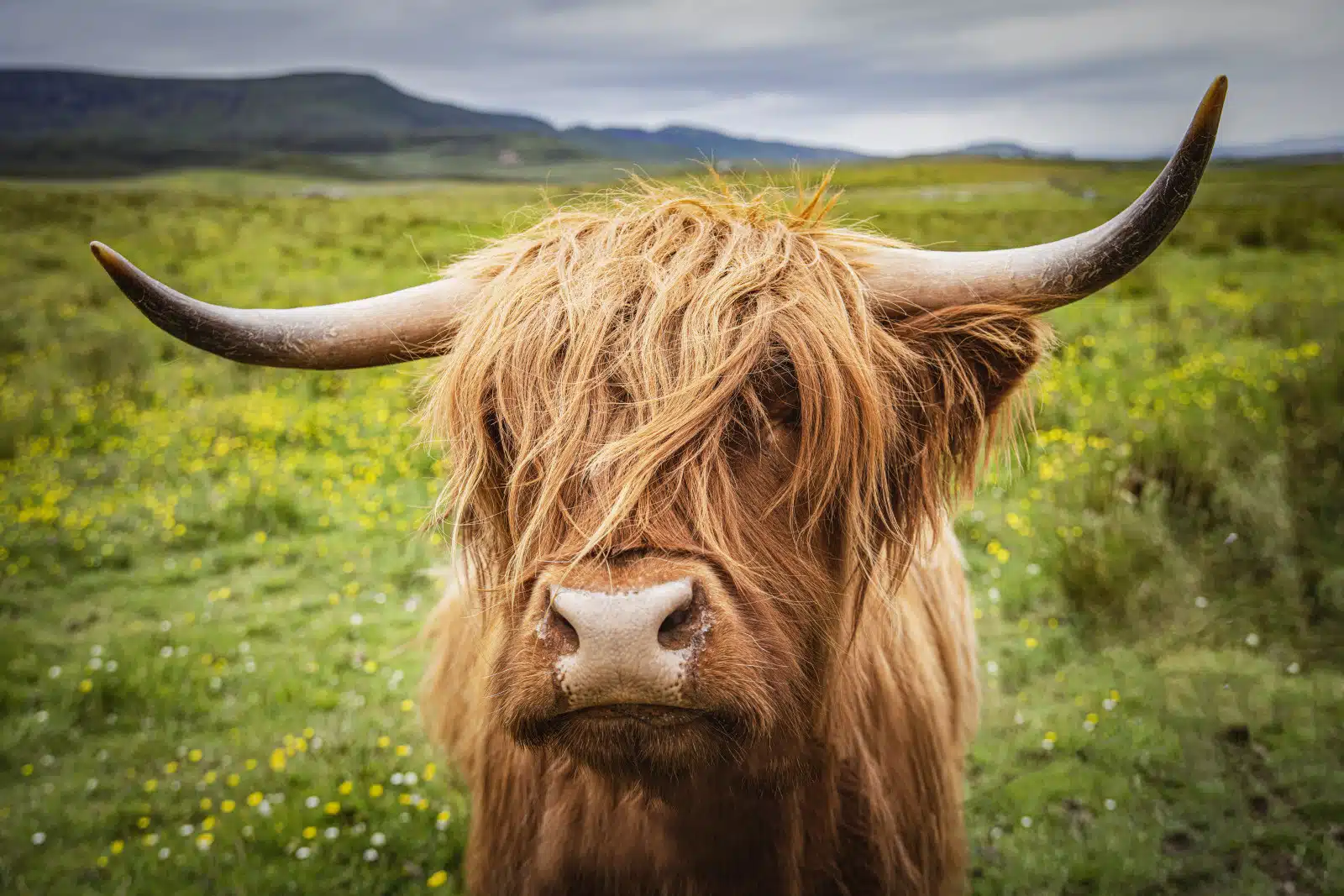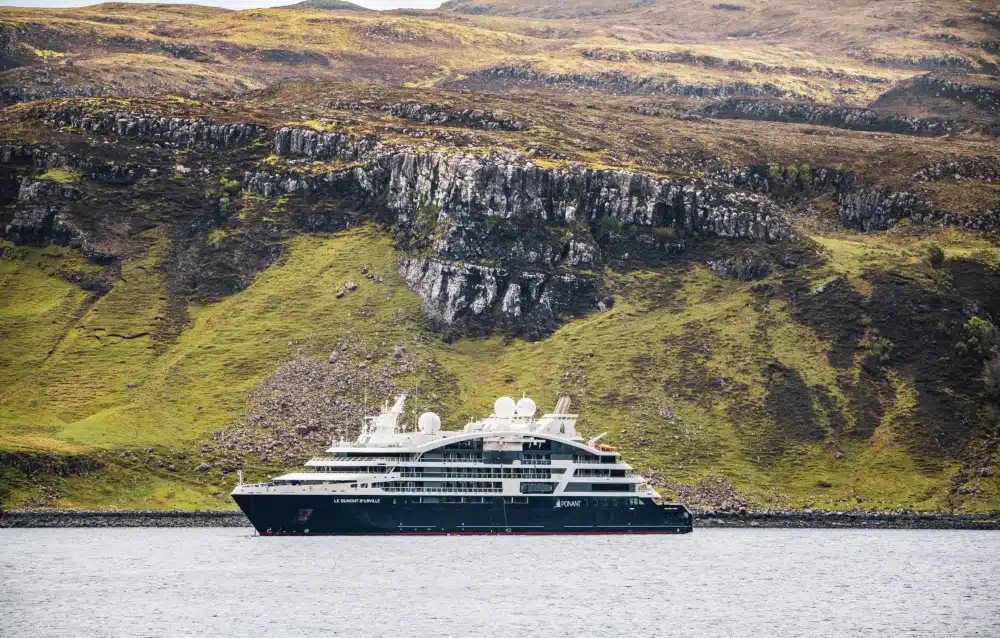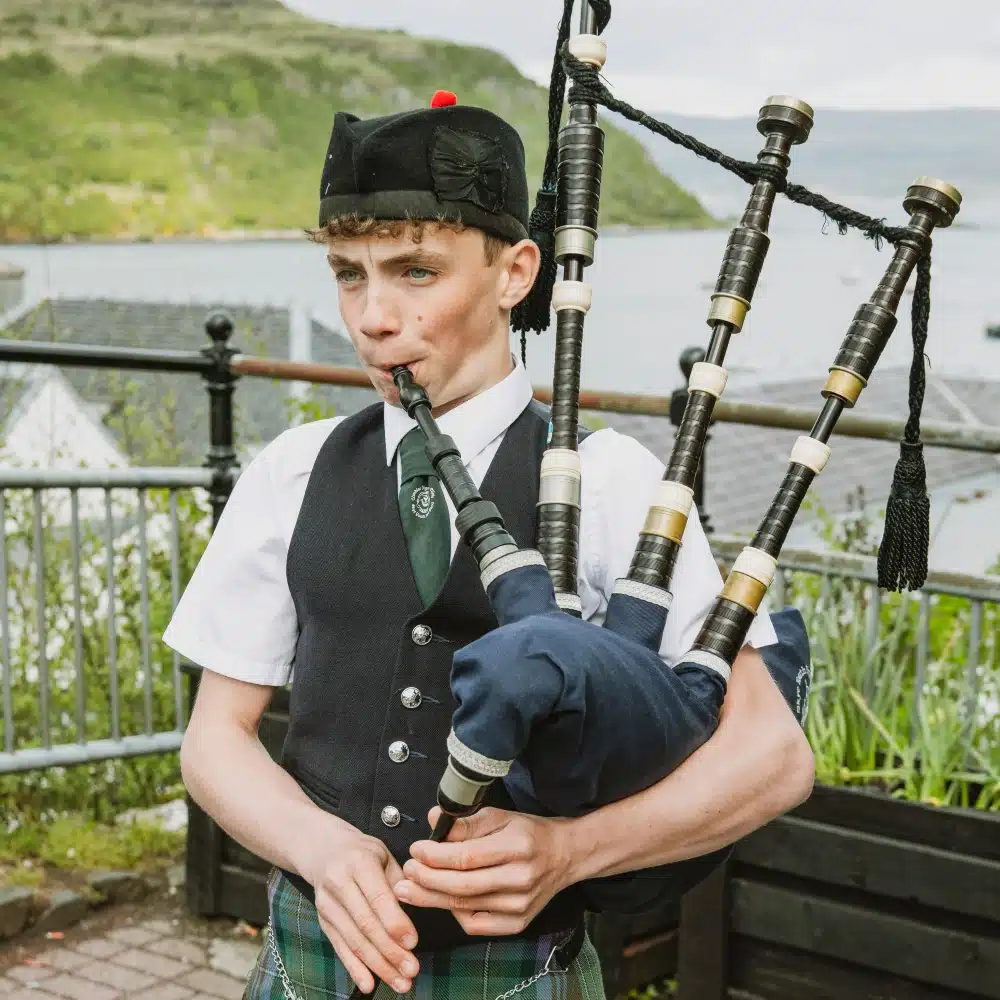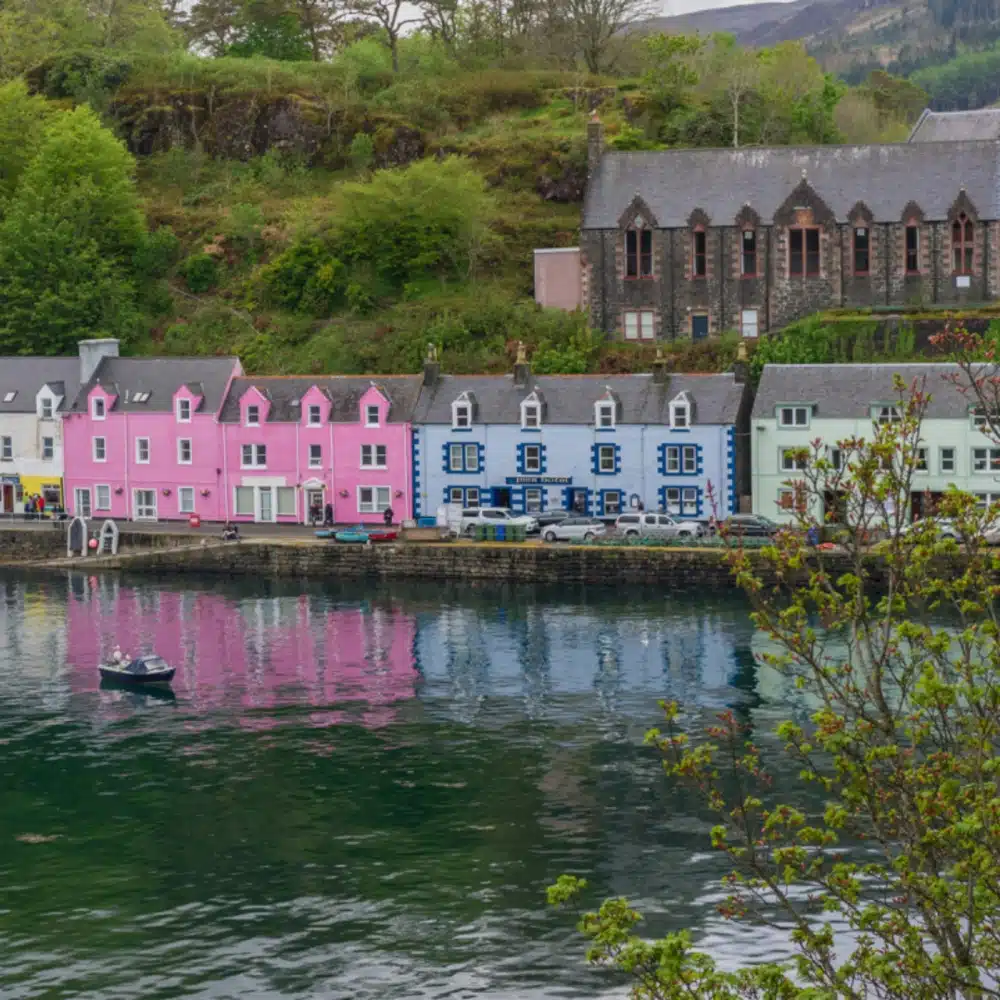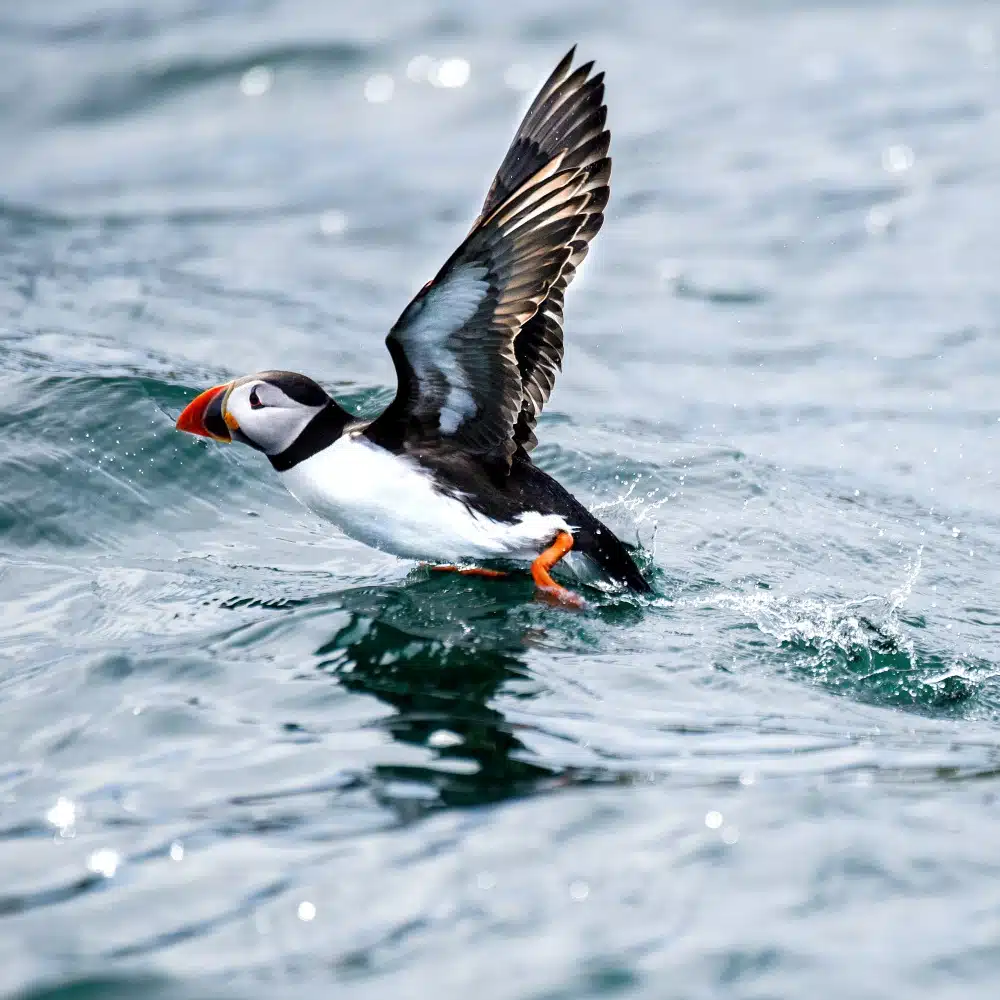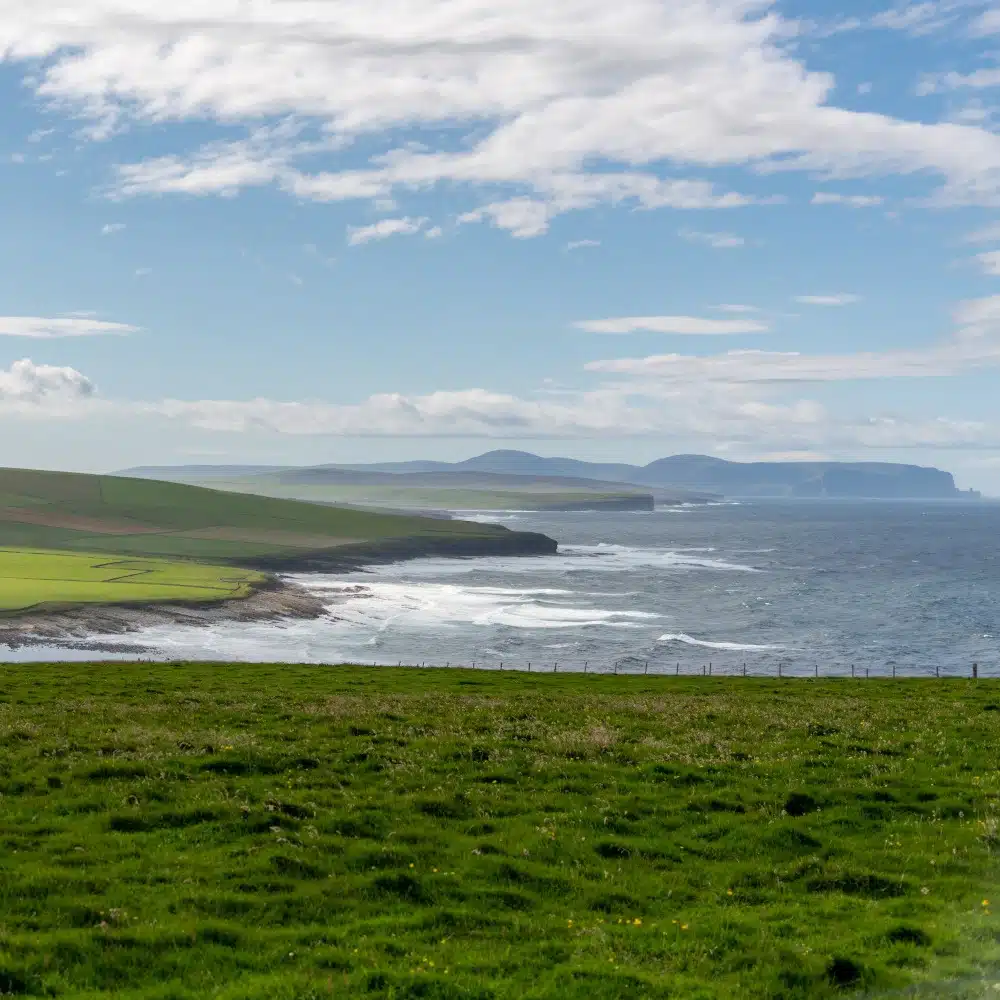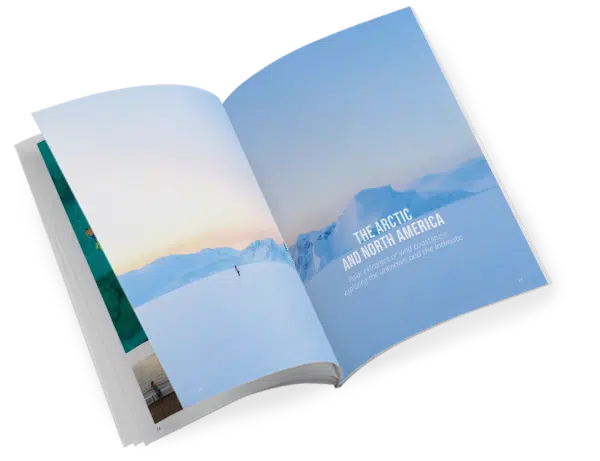One day soon, you might find yourself on our luxury expedition ship, Le Champlain, docked in Kirkwall, the charming capital of the Scottish Orkney Islands. There, in your free time, perhaps you’ll visit Highland Park Distillery, and the proprietor will count off the names of his whiskies on his fingers: Eibar, Thor, Loki. You might be surprised to hear Viking names on a very Scottish whisky, but don’t be. Norse influence is everywhere here, even in the local DNA—literally. We’ve collaborated with Smithsonian Journeys to shed some light on the matter during our upcoming Scottish Isles and Norwegian Fjords Voyage.
Though it is widely known that Vikings settled in Scotland’s Orkney and Shetland Islands, most visitors arrive on these shores expecting a stereotypical Scottish feel. You’ll certainly hear locals speaking with that unmistakable brogue, warming themselves with a dram here and there, or even blowing into bagpipes. But you’ll notice plenty of remnants and relics from the Viking Age, too, when the Norse people of Scandinavia spread their influence as far as their longboats would take them.
PONANT is collaborating with Smithsonian Journeys on our Scottish Isles and Norwegian Fjords Voyage to illuminate the rich history and heritage of Scotland – brogue, whisky, Vikings, and all. Throughout this eye-opening journey, we’ll have experts on hand for lectures, tours, and informal conversation.
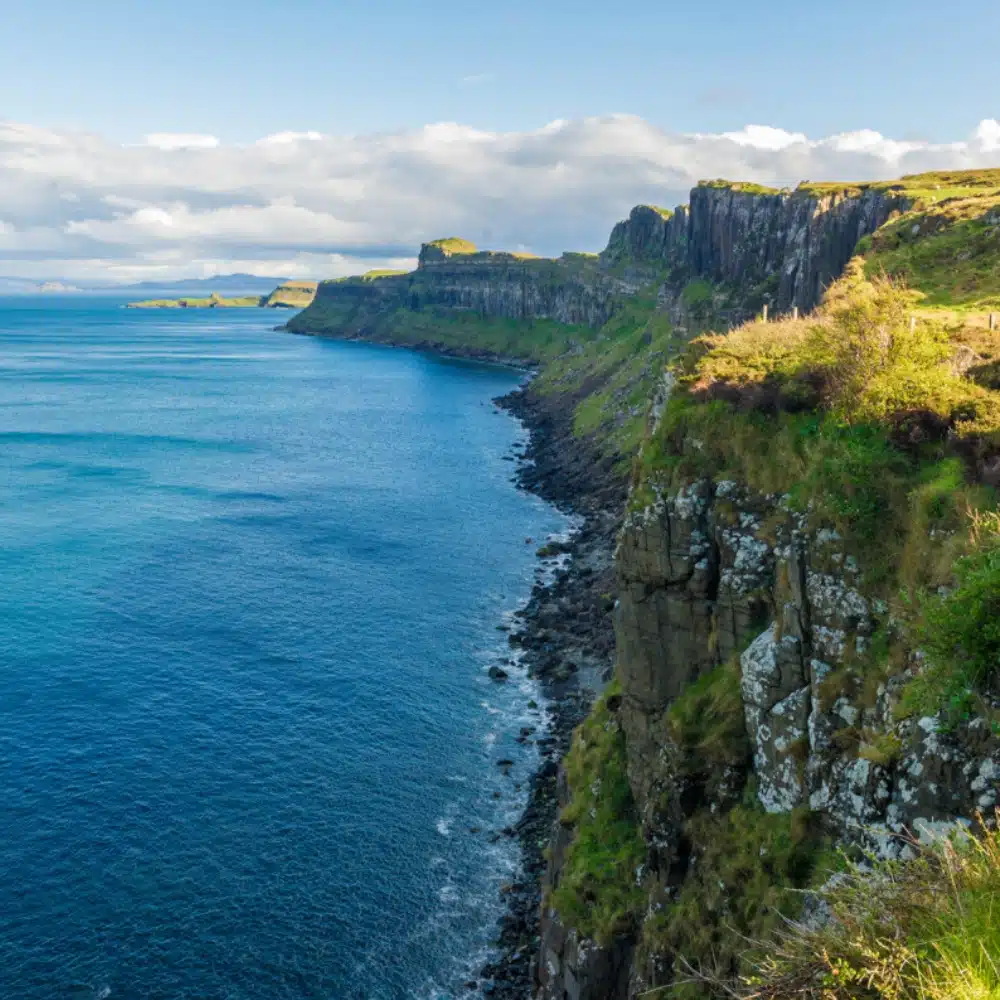
Norse Influences Centuries in the Making
It’s been more than 600 years since the Norse controlled any of Scotland. Still, some Scots claim that their Norse heritage sets their country apart from the rest of the United Kingdom. In fact, this sentiment is part of what’s behind the occasional referendum for Scottish independence. With the help of our Smithsonian Journeys expert – and through your own observations – you’ll come to understand that Norse influence runs deep in this northern archipelago.
By most accounts, the Vikings first invaded the British Isles around 793 AD. Today, some scholars and museums are moving away from depictions of violent warriors landing on shores and burning down villages. Instead, they’re talking about the softer side of Vikings. Yes, some used violent means, they say, but Vikings were brave explorers escaping hardships from their homeland. As overpopulation in Scandinavia reduced the acreage of arable land, men and women braved the oceans by necessity. Once they settled in Scotland, they built a home life bolstered by farming and commerce.
Norse culture, then, is ever-present in the Orkney and Shetland Islands – if you know where to look. In one scientific study, samples were taken from a group of men and analysts found that 60% of their DNA had origins in Norway. Of course, you won’t be able to see this. But there are other distinctly Norse ways of being that the in-the-know observer could detect: Namely, locals tend to end their sentences with prepositions, a habit that many English grammar teachers would scoff at. Plus, when you talk with islanders, you might learn that social status and rank count for little in their day-to-day lives.
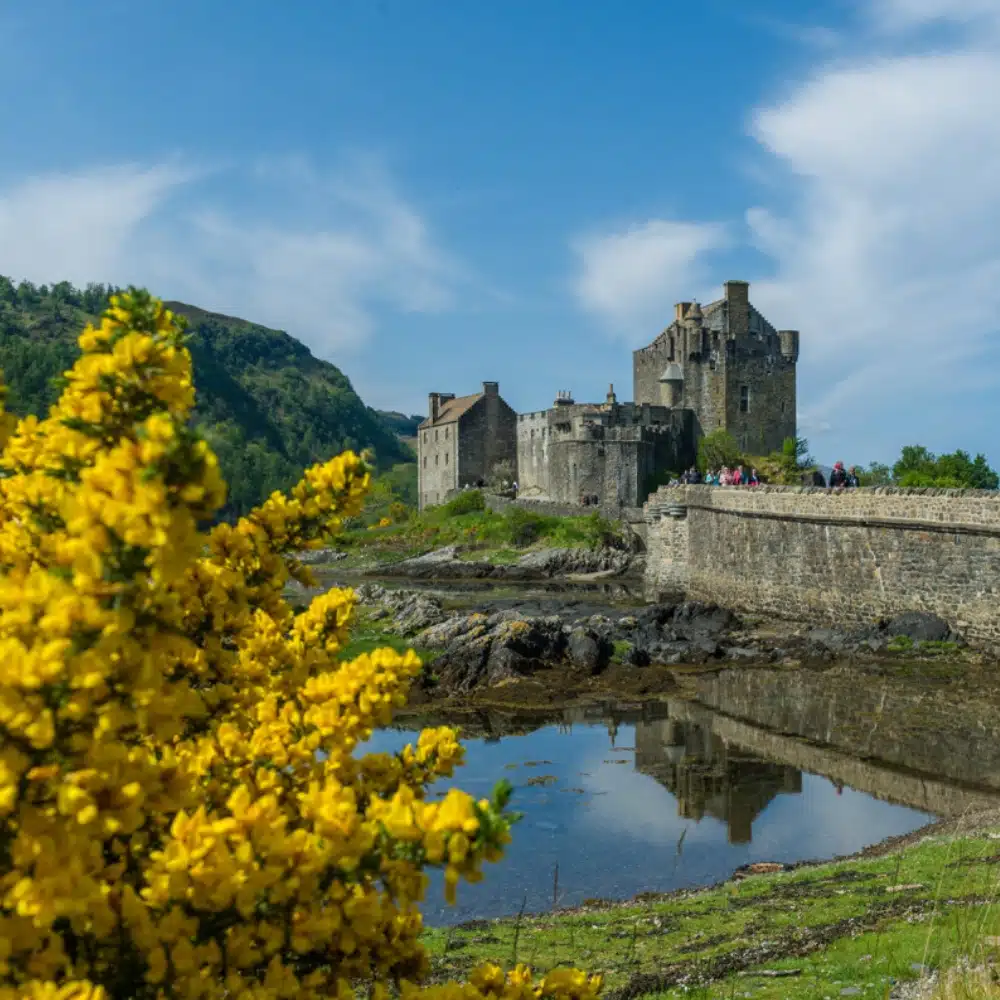
Footprints of Vikings on Orkney Island
The most imposing structure in the historic center of Kirkwall, capital of the Orkney Islands, is not Scottish in origin at all, but Norse – the stunning Romanesque St. Magnus Cathedral. Within its massive sandstone walls lie the bones of St. Magnus Erlendsson, the Norwegian Earl of Orkney from 1106 to 1117. The leader was martyred after he lost a battle with Haakon, a rival. Haakon went on to rule, and to build the nearby Orphir round church, the oldest of its kind in Scotland. Their tale is told in the Norse sagas, yet it is also etched into the consciousness of modern-day Scotland.
Were you to wander the island, it would be difficult to avoid additional Viking-age ruins, from grass-covered burial mounds and a Viking sauna on the tidal island known as Brough of Birsay to Neolithic tombs marked by 12th-century Norse runestones, ceremonial stone etchings. There’s another legacy at the Kirkwall post office – this one more decorative in nature. Just look directly above the doors, and you will see small Viking ships intricately carved into the lintels.
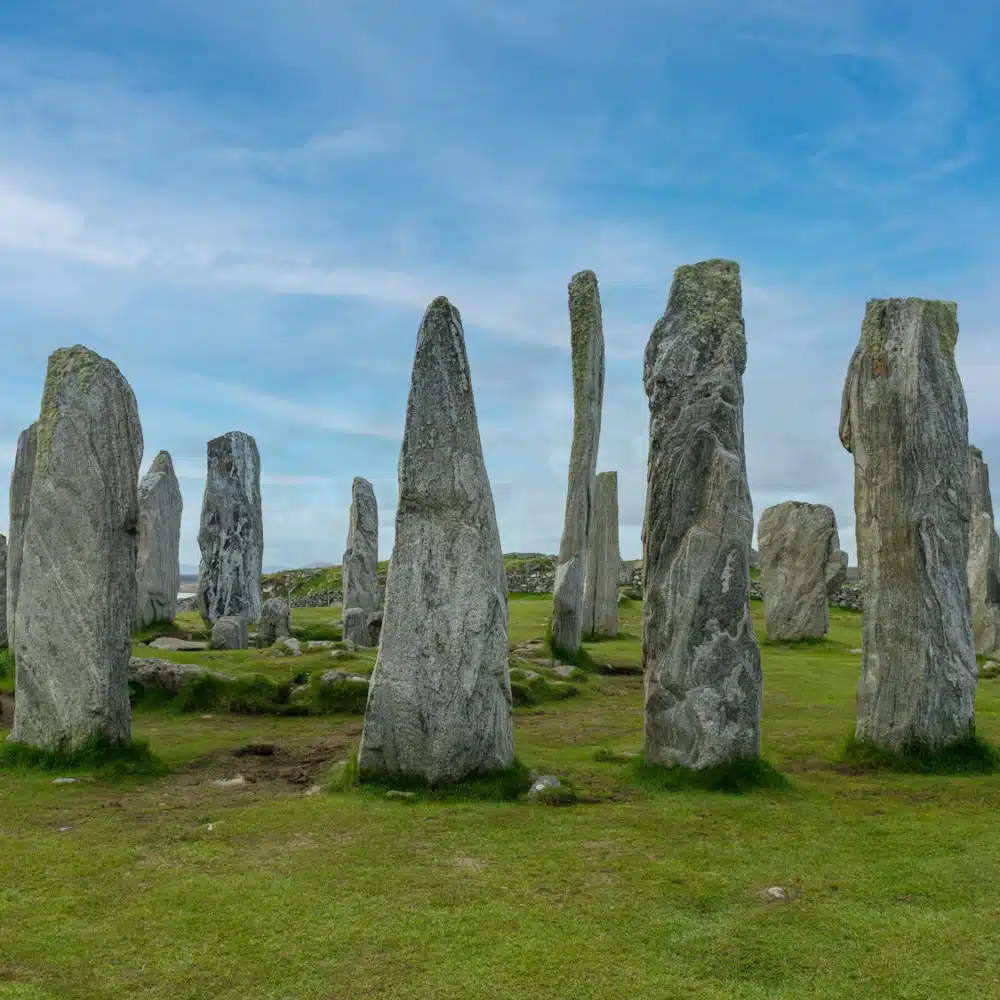
Shetland: Home to the Largest Viking Site in Britain
If you can look past the adorable Shetland ponies and Shetland sheepdogs on the main island of Shetland, you will come upon other Viking legacies. And if you have any doubts of the Viking influence on the Shetlands and Orkneys, Jarlshof will wash them away. Jarlshof is the most celebrated and spectacular Viking excavated site in the British Isles, and the pride of Shetland ancestry. The Bronze Age settlement dates to 2500 BC, but it was occupied by subsequent civilizations – including the Vikings, who made it very much their own.
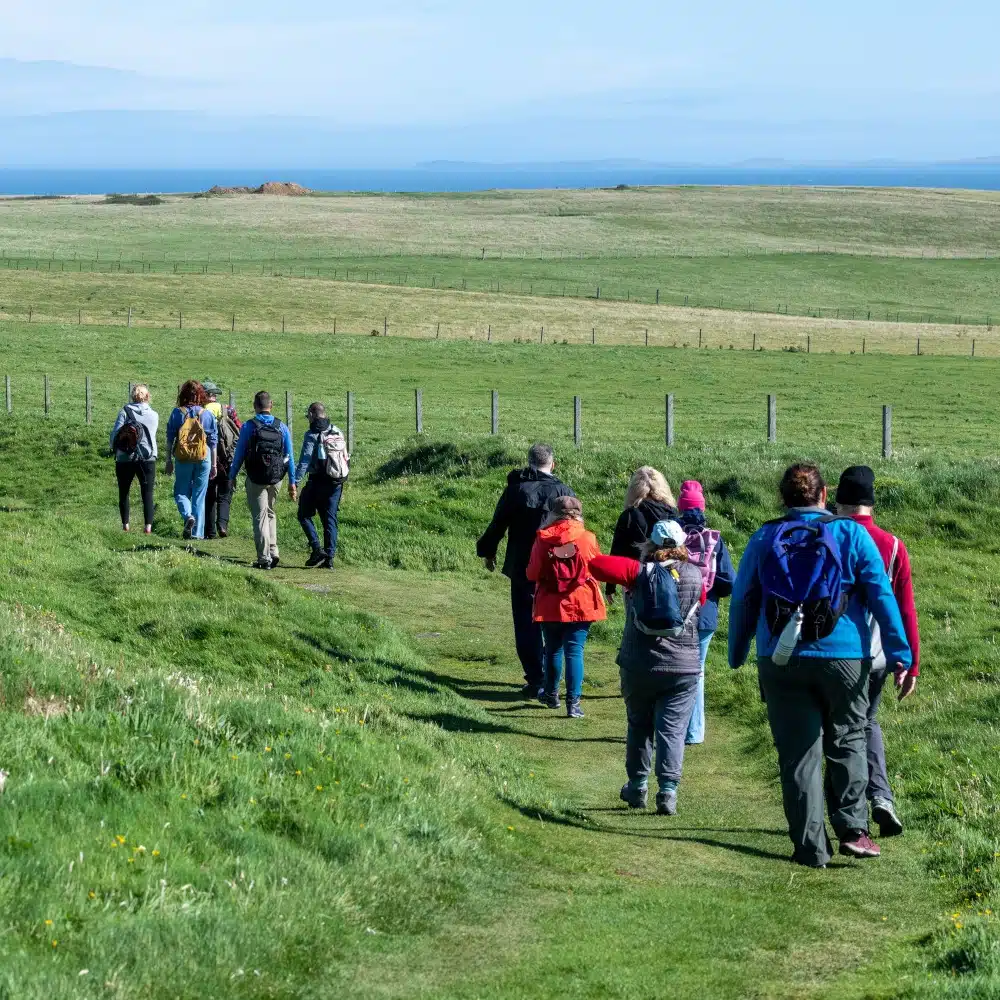
Jarlshof is the largest Viking site in Britain and its longhouse – uncovered in the 1930s – provides glimpses of everyday life here. Norse residents fished and farmed, kept livestock, made wool on looms, and used iron tools. Whale and seal bones have also been uncovered, suggesting a more vibrant hunting culture than you might expect in that era. In all, Jarlshof shows us that the Vikings called this island their home for centuries and had an outsized impact on the Shetland of today.
